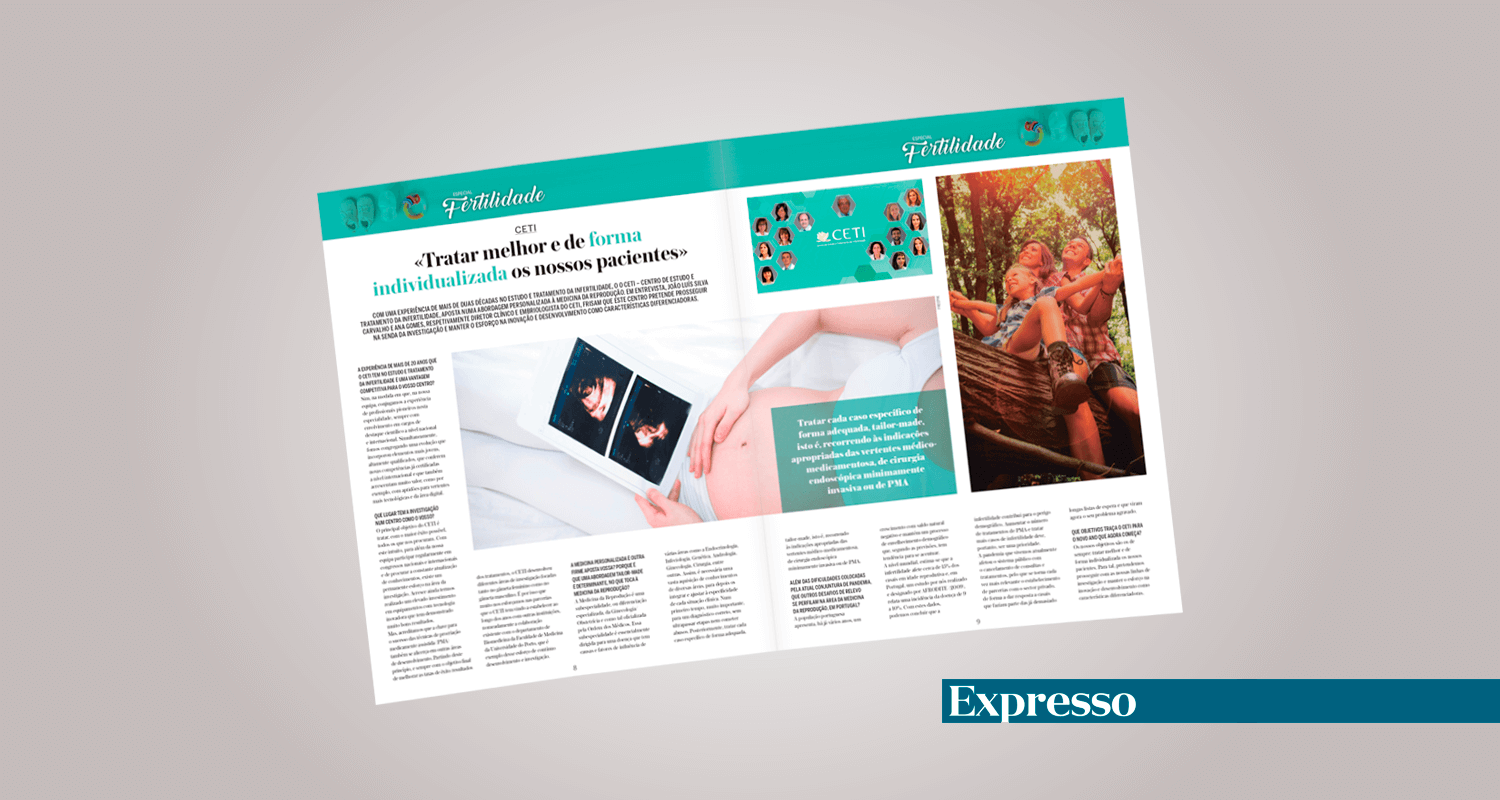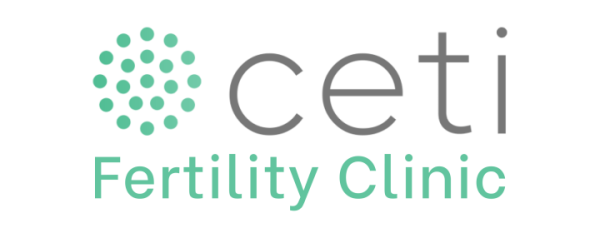
CETI featured in the Expresso newspaper
With over two decades of experience in the study and treatment of infertility, CETI – Center for the Study and Treatment of Infertility, focuses on a personalized approach to Reproductive Medicine. In an interview, João Luís Silva Carvalho and Ana Gomes, Clinical Director and Embryologist at CETI, respectively, emphasize that this center intends to continue on the path of research and maintain its efforts in innovation and development as differentiating characteristics.
Is CETI's experience of over 20 years in the study and treatment of infertility a competitive advantage for your center?
Yes, as our team combines the experience of pioneering professionals in this specialty, always involved in prominent scientific positions at national and international level.
At the same time, we have been bringing together an evolution that has incorporated younger, highly qualified elements, who provide new skills that are already certified at an international level and that also add a lot of value, such as, for example, skills for more technological and digital aspects.
What place does research have in a center like yours?
CETI’s main objective is to treat, with the greatest possible success, all those who seek us out.
To this end, in addition to our team regularly participating in national and international conferences and seeking to constantly update knowledge, there is a permanent effort in the area of research.
In addition, we have made a significant investment in equipment with innovative technology that has demonstrated very good results. However, we believe that the key to the success of medically assisted reproduction (MAP) techniques also lies in other areas of development.
Based on this principle, and always with the ultimate goal of improving treatment success rates/results, CETI has developed different areas of research focused on both the female and male gametes.
This is why we have put so much effort into the partnerships that CETI has established over the years with other institutions, namely the existing collaboration with the Biomedicine Department of the Faculty of Medicine of the University of Porto, which is an example of this effort towards continuous development and research.
Is personalized medicine another firm commitment of yours? Why is a tailor-made approach crucial when it comes to reproductive medicine?
Reproductive Medicine is a subspecialty, or specialized differentiation, of Gynecology/Obstetrics and as such is officialized by the Portuguese Medical Association. This subspecialty is essentially directed towards a disease that has causes and influence factors from several areas such as Endocrinology, Infectiology, Genetics, Andrology, Gynecology, Surgery, among others.
Therefore, it is necessary to acquire extensive knowledge from different areas, to then integrate and adapt them to the specificity of each clinical situation. Initially, this is very important for a correct diagnosis, without skipping steps or committing abuses.
Subsequently, treat each specific case in an appropriate, tailor-made manner, that is, using the appropriate indications from the medical-pharmaceutical aspects, minimally invasive endoscopic surgery or PMA.
In addition to the difficulties posed by the current pandemic situation, what other significant challenges are emerging in the area of Reproductive Medicine in Portugal?
The Portuguese population has been experiencing negative natural growth for several years now and is undergoing a demographic ageing process that, according to forecasts, is likely to become more pronounced.
Worldwide, it is estimated that infertility affects around 15% of couples of reproductive age and, in Portugal, a study conducted by us and called AFRODITE (2009), reports an incidence of the disease of 9 to 10%. With this data, we can conclude that infertility contributes to demographic danger.
Increasing the number of ART treatments and treating more infertility cases should therefore be a priority. The current pandemic has affected the public system with the cancellation of appointments and treatments, which is why it is increasingly important to establish partnerships with the private sector, in order to respond to couples who were on already very long waiting lists and who have now seen their problem worsen.
What goals does CETI set for the new year that is now beginning?
Our goals are the same as always: to provide better and more personalized care to our patients. To this end, we intend to continue our lines of research and maintain our efforts in innovation and development as differentiating characteristics.
